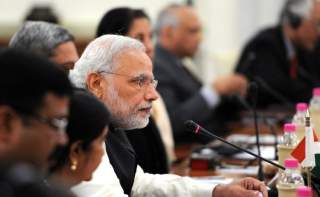India's Modi Is Playing the Wrong Game against China and Pakistan
Delhi’s approach to Balochistan is likely to backfire.
The CPEC Opportunity
Strangely, foreign policy observers in India and the United States view CPEC mainly in strategic or military terms. For both China and Pakistan, the primary goals of CPEC are economic. Kashgar is nearly three thousand miles from Shanghai by road. CPEC provides western China with quicker access to sea and reduces the country’s dependence on the Asia-Pacific sea lines of communication. For Pakistan, the Gwadar port reduces its dependence on its two major ports, both located in the greater Karachi area; it also provides a means to develop its most deprived areas and boost economic growth and efficiency in established, but lagging, industrial hubs.
Policy-influencing communities in New Delhi and Washington present Gwadar as a future naval port and a means for China to gain a strategic foothold in the Indian Ocean region. But there is little indication of China viewing Gwadar as a military option. Furthermore, Pakistan has three existing naval bases in the region. The Pakistan Navy is developing Ormara, not Gwadar, as a naval hub to secure its Arabian Sea coastline.
Misreading or misframing Chinese and Pakistani intentions in Balochistan and Gilgit-Baltistan could have unintended, negative consequences; fearmongering over a Chinese naval presence in Pakistan could become a self-fulfilling prophecy.
CPEC, according to Chinese officials, is the “flagship project” of the One Belt, One Road (OBOR) initiative, whereby China is enhancing its connectivity to the broader Eurasian landmass and Africa. Rather than opposing CPEC and OBOR, New Delhi’s foreign policy community ought to explore ways to piggyback on Chinese efforts to enhance regional connectivity and rekindle discussions of reopening dormant Indo-Pakistani trade routes and offering Afghan transit trade. New Delhi loses little from either backing down from opposing CPEC or even offering boilerplate statements in favor of it. But its opposition toward CPEC and provocative statements regarding Balochistan and Gilgit-Baltistan raise the risk of needless conflict.
Arif Rafiq (@arifcrafiq) is a fellow at the Center for Global Policy and president of Vizier Consulting, LLC, which provides strategic guidance on political and security issues in the Middle East and South Asia. He is conducting a research study on the China-Pakistan Economic Corridor.
Image: Narendra Modi at bilateral Indian-Russian talks. Kremlin.ru

